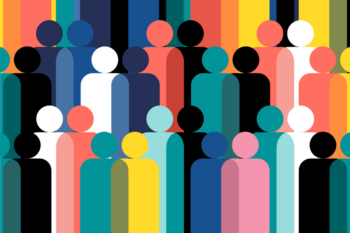What does beer have to do with systems?

DATE
TYPE Prevention Centre News
It was a hot day in late December when more than 30 policy makers and researchers arrived at a Prevention Centre meeting in Sydney geared up to play the Beer Game.
Despite the celebratory time of year, there were no cleansing ales in sight – just a group of tables and a board game on each. The Beer Game is a practical group exercise that simulates the supply chain of the beer industry to illustrate the challenges of working in a complex system.
Dr Tim Haslett, an expert in systems thinking and modelling, led Prevention Centre colleagues and friends through the Beer Game. In the game, participants work in groups and assume the roles of retail managers, wholesalers, distributors and factory workers – with each playing a role in trying to balance supply and demand for beer. Participants learn that their actions cause reactions down the supply chain – contributing to back orders in the bottle shop or a stock surplus in the warehouse.
Organisations around the world have used this game, which was developed in the 1960s, to understand how the actions of individuals combine with the actions of systems to affect outcomes.
Estelle Marque, Course Manager of the Centre for Healthcare Redesign at the Agency for Clinical Innovation, who took part in the game, said it was a simple way to experience how the design of the systems affects human behaviour.
“It was a great motivator for us all to review how we design systems to get the best outcomes,” she said. “Modelling a system is a powerful exercise to identify and evaluate all the potential actions to improve it.”
Below, Dr Haslett answers questions about key aspects of the game and how it illustrates the benefits of systems thinking.
What is the aim of the beer game and what does it teach participants?
The game aims to show participants that decisions they make may have ripple effects on other parts of the system and that the decisions that other people make in their jobs may have ripple effects that impact on them. It shows that we are not particularly good at receiving complex feedback about how the rest of the system is performing. This is because there is often a delay in this feedback so we tend to overcompensate. When other people in the system overcompensate as well, the net effect is that the system can quickly run out of control.
It also teaches us that having a group of talented and well-meaning people operating without a sense of how the system is responding can be a recipe for disaster.
What is systems thinking and what are the key benefits?
Systems thinking is a discipline that links causation to systemic structures. This means we must think of the consequences of our actions in terms of the systemic structures in which they occur rather than in terms of simple linear thinking, ie A causes B causes C. The chief advantage of this is recognition of feedback systems, ie A causes B causes C causes A. The shift to feedback thinking helps explain many non-linear behaviours of systems as well as many unintended policy consequences.
The key benefits of adopting systems thinking are that we recognise that system structures are the primary determinants of system behaviours and that changing behaviours requires changes to system structures. It also helps us understand that the results of our behaviour can often be distant in both time and place and that there may be delays before this is obvious to us.
One of the major benefits of using a systems thinking approach is that it provides a common language and a set of intellectual technologies for stakeholders to examine the complex interactions between individual behaviours, organisational structures and policy decisions.
Who can be a systems thinker?
Everybody can become a systems thinker. In fact, thinking systemically is intuitive for many people. For others, it is a new way of thinking about the world, which helps them understand problems that they may have regarded as intractable. Studying the disciplines of systems thinking gives us all a language for explaining what has been an intuitive intellectual approach.
What key resources would you recommend for those starting to learn about systems resources?
- Systems Thinking World. This Wikipedia page, co-ordinated by Gene Bellinger, is a useful starting point. It has an extensive bibliography, some of which may be a bit advanced for the beginner.
- Peter M Senge, The Fifth Discipline: The Art and Practice of The Learning Organization 1990, 2006. A blockbuster in the 1990s and still a classic.
- Peter M Senge, The Fifth Discipline Fieldbook: Strategies and Tools for Building a Learning Organization 1994. An excellent set of examples of systems thinkers putting their work in practice.
- John D Sterman Business Dynamics: Systems Thinking and Modeling for a Complex World 2002. Regarded by many as the bible for applications of systems thinking.
- I have designed a series of tutorials which you can find here.



